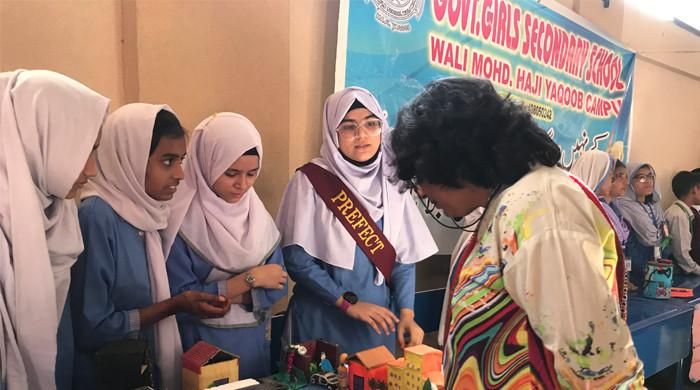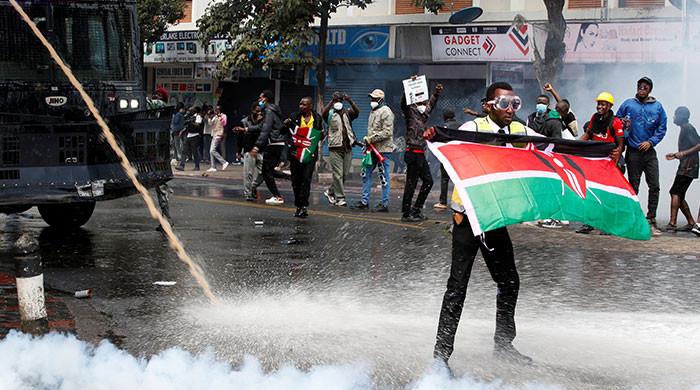Students use everyday items to create green and environmentally conscious solutions using STEAM elements.
The Church Mission School, located in the heart of the old city of Karachi, was packed with great minds and fresh ideas, as they competed to forge sustainable solutions through innovative techniques in a district-level competition organized by STEAM Pakistan , a gender transformative program. of the Federal Ministry of Education, along with the STEAM Policy Unit, Sindh.
Students from various public schools of Karachi South District came together on Saturday to participate in STEAM Muqablo using the power of science, technology, engineering, art and mathematics to face real-world challenges with imagination, creativity and practical skills . As Pakistan continues to be mired in growing environmental concerns and the need to find sustainable ideas to address them, students took it upon themselves to use everyday items to create green and environmentally conscious solutions to address issues such as rising heat and recycling waste materials . .
From making beautiful, sustainable bags to engineering systems to cool the atmosphere in traditional and non-traditional ways, the students' creations not only offered practical solutions but also heralded a new era of diligent creativity.
So far, 12,000 sixth to eighth grade students from 200 public schools across the province have participated in the contest. After a competitive school round, the battleground of finding creative innovations turned to district competitions in cities like Sukkur, Hyderabad, Shaheed Benazirabad and more, and now Karachi enters the last stage of the district round.
The competition included the following challenges for students to find innovative solutions to address current climate-related challenges.
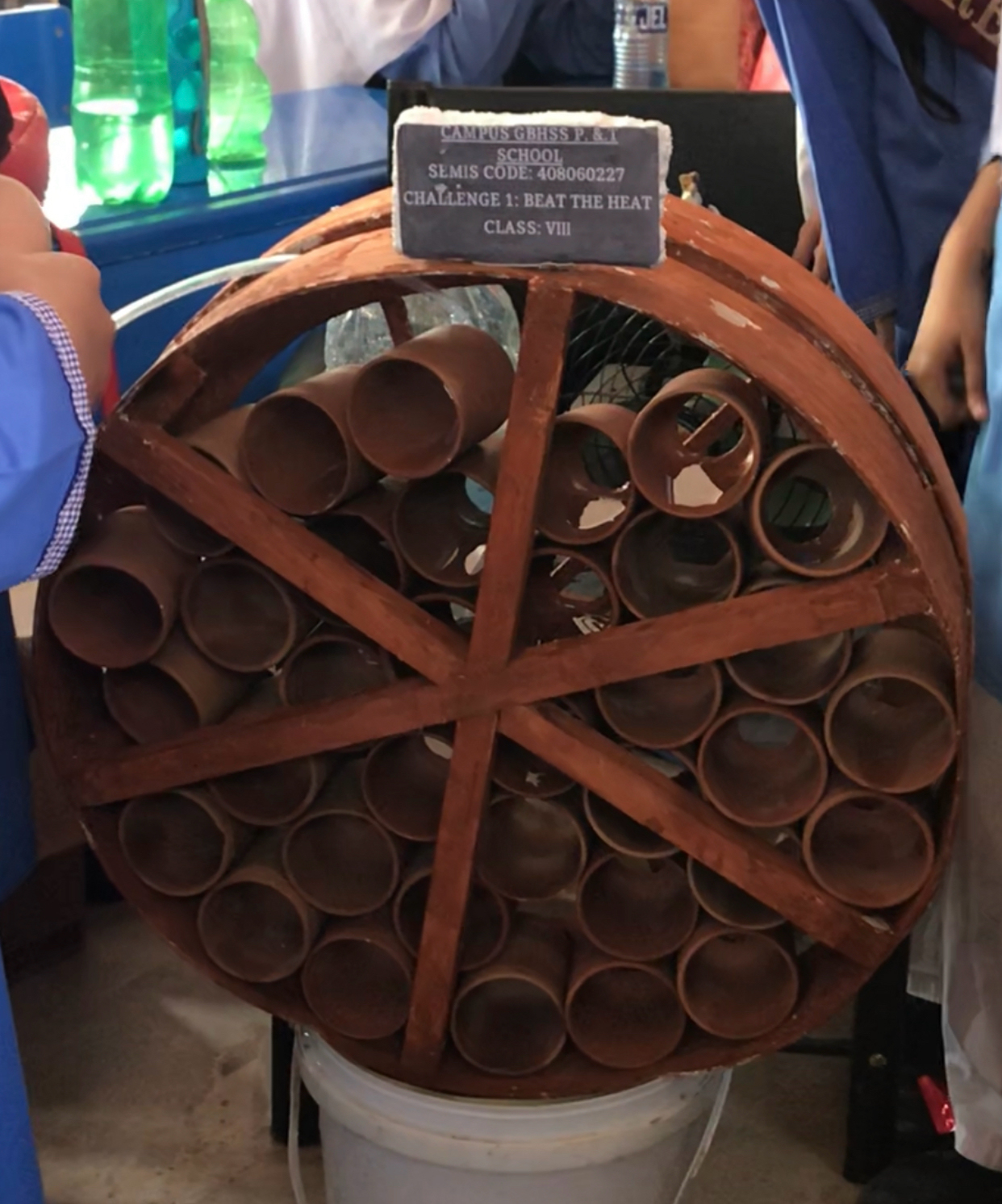
Overcome the heat challenge: Students create a cooling method or device using cheap, reused, and locally sourced materials for the upcoming summer months.
Build a Bag Challenge: Students design a sturdy, sturdy bag or other carrier using cheap, repurposed, locally sourced materials to carry their heaviest textbook.
Postcard Design Challenge: Students design a postcard of their hometown featuring the elements they consider special.
Design a STEAM game: Teachers create a fun game for their students to enjoy learning STEAM concepts from the curriculum.
A group of sixth graders built a bag using flour, calling it “waste material.”
“Then we decorated the bag with chip wrappers and sewed it. This bag can carry all our necessary things,” said Maham, who was briefing the judges about the innovatively designed bag of his.
While Maham decorated the bag with wrappers, her groupmate Hira Fatima spent half an hour sewing the bag, while Iraj Imran and Zahra Ashiq worked together to cut the bag and glued tiny balls of a thermapole sheet to it to embellish it.
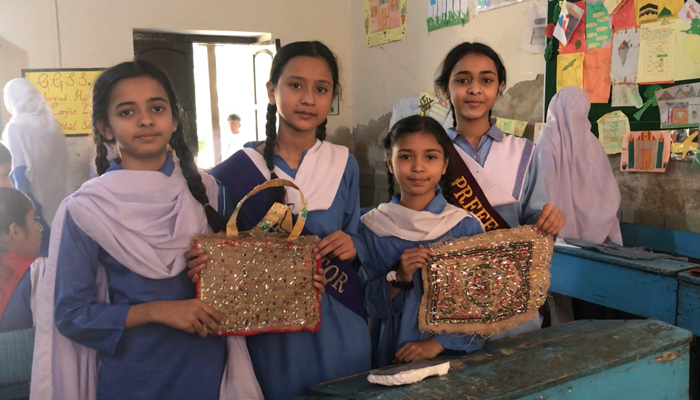
A group of children from Church Mission School created a portable cooling device using two small ready-made fan wings and a 1.5 Hz DC motor.
“We also tried using plastic bottles to make the wings of the fan, but it did not generate enough cold air, so we opted for these wings which cost us Rs 30 for better cooling. In total, the device cost Rs 400,” said the children studying in class eight.
Another group of girls from SMB Fatima Jinnah Government Girls' School made a zero-cost, window-sized eco-friendly cooler by applying the five STEAM techniques. The cooling solution, made from cardboard and plastic bottles, was built to work best in a hot, desert area where there are no plants or trees to ensure a cool environment, the girls said.
An innovative group from Shireen Jinnah Colony Government Girls' High School made a fan using waste materials, including a bucket, a pipe, plastic beads and a ready-made fan. The cost of the product was 300 rupees.
“We really enjoyed creating the cooling solution,” the girls said, sharing their excitement about entering the contest.
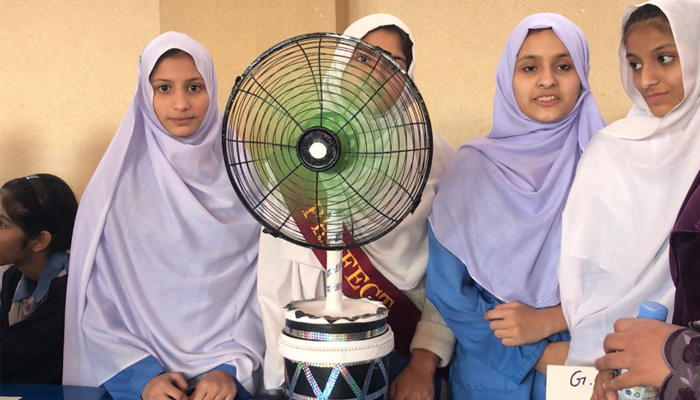
Their teacher, Maliha, said the girls had a great experience developing the solution and learned a lot through it.
“They had a lot of different concepts in mind. “Students learn how electrical devices work by reading books, but they usually do not have the opportunity to apply that knowledge in practice,” he said, highlighting that the project gave them the opportunity to learn and benefit from the concepts learned.
Instructions geo.tv About the competition, STEAM Pakistan Partnerships Director Sana Kazmi said it was designed differently from typical science competitions to allow students to explore various concepts to create their solutions.
“We wanted to give them interdisciplinary challenges where they solve real-world problems, so that their learning is a little hands-on,” he said, adding that the idea was to make the interdisciplinary competition — a STEAM concept — where students use science. but also design, mathematics, art and other components together.
Kazmi added that another principle of STEAM was that students had to work in groups for collaborative problem solving.
“There is collaboration between different subjects but also between children, so it is not an individual effort. “The students have to tell the judges what each one has done and then they are given points accordingly,” she maintained.
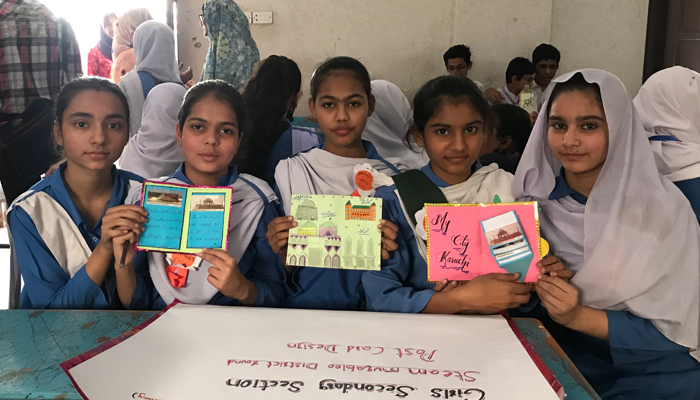
Kazmi, who is also one of the leaders of the STEAM Policy Unit in Sindh, also noted the extraordinary interest and participation of female students in the competitions.
“In all these competitions, 78% of the participating students were girls,” he said, also highlighting that there is the same need for boys to be creative as well.
“It's always comforting to see that a child has sewn a bag.”
Imtiaz Bhugio, chief guest of the event and South district education officer, appreciated the efforts of the STEAM team, particularly the STEAM policy unit, managed by the Department of Literacy and School Education. Talking with geo.tvHe also praised the work done by the students in presenting extraordinary solutions to the challenges posed to them, while also interacting with each other.
“It is a fair where students observe each other's work, in addition to learning and discovering new ideas. “I would recommend conducting such programs on a quarterly basis so that our children advance in the field of science, arts and other subjects,” he said, highlighting the role of such competition in reducing the dropout rate and non-attendance rate. to schools.
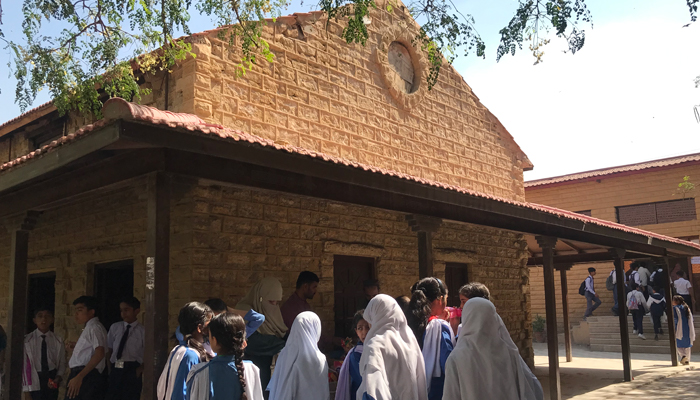
He added: “These competitions will encourage students to be interested in school and studies.”
Commenting on the notable participation of female students, Bhugio said that girls respond well to these types of projects. “Even today, there are more girls and STEAM is a great tool to promote girls' education.”
Namrah Khalid, who works for social climate justice, was a judge at the event and recognized the exceptional talent of the students who participated in the competition.
“The students have done many innovative things and have not necessarily brought difficult concepts through their creations. They have created really simple materials to make their products, like those that are part of our culture, like the terracotta of Sindh,” he said, adding that he found it difficult to judge among the many participants.
Additionally, Dr. Danish Ali, assistant professor of mathematics at the Institute of Business Administration, was judging teacher design games created to easily explain science and mathematics concepts to students in an interactive and fun way.
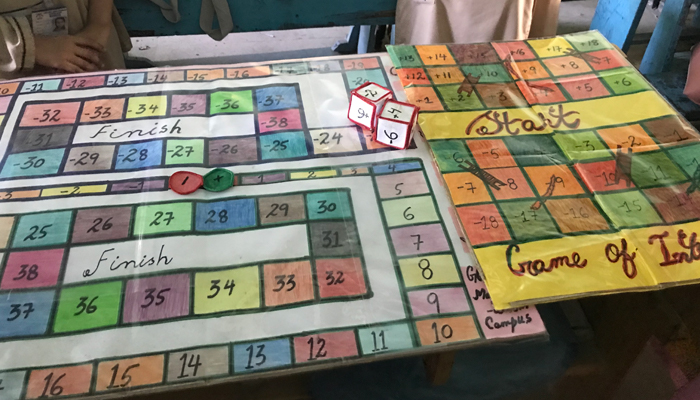
Dr. Ali said that teachers have made a good attempt to create different interactive games to engage their students.
“Usually, students find mathematics and science to be boring subjects, so these games designed and implemented by teachers in their courses will make the subjects fun for students and they will be able to understand the concepts in a much better way. better”.

